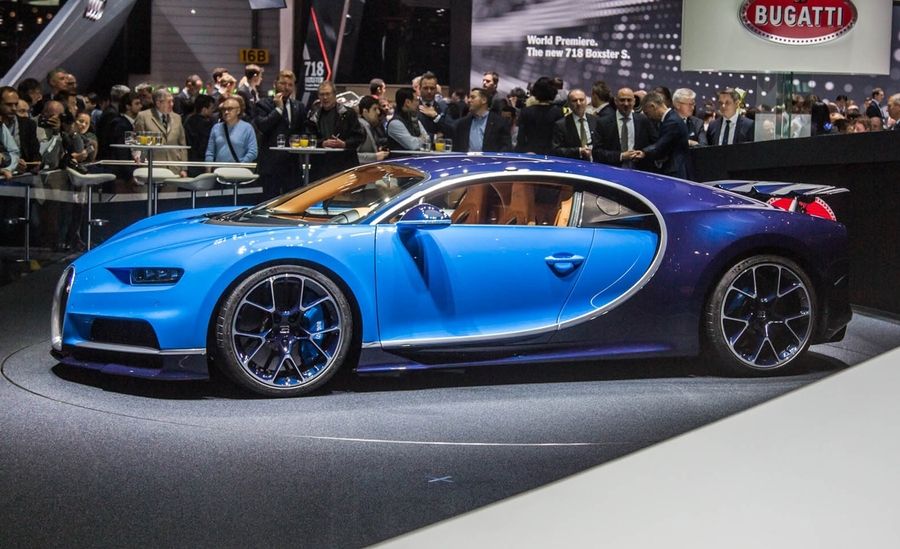Make Bugatti Great Again
Bugatti says the 4400-pound Chiron is “the world’s first production sports car with 1500 hp.” It’s best to simply shelve any expectations of modesty on Bugatti’s part. After all, when the car you’re replacing produced 1200 horsepower, hit 258 mph, and cost more than $2 million, adding an extra 300 horsepower, 3 mph of governed top speed, and half a million to the window sticker matters. Oh, and just 500 will be made, because nobody wants a mass-produced $2.6-million car.
Between Bugatti’s braggadocio and posturing, there are real improvements to the Veyron’s formula. Does it matter that, if every strand of carbon fiber in its new central tub were laid end to end, they’d “stretch nine times the distance between the earth and the moon”? No, and we pity the Bugatti employee charged with checking the arithmetic on that factoid. But it is indicative of a real effort to reduce—or at least hold the line on—the Chiron’s weight relative to that of the somewhat pudgy Veyron. All of that carbon fiber—the body panels also are made of the stuff—helps keep the Chiron right around the same weight as the 4486-pound Veyron, despite being 3.2 inches longer, 1.6 inches wider, and 0.3 inch taller. Bugatti further claims that the Chiron’s structure is as stiff as those underpinning LMP1 racing prototypes.
At the risk of sounding beguiled, the styling of the Chiron is notably more fetching than that of the Veyron. The C-shaped curve carved into each side of the body recalls Bugatti’s 1930s-era art-deco masterpieces, the Type 57 Atlantic and Atalante, as does the spear running down the car’s spine. The all-mesh tail appears to belong to a different car, but the surfaces bending and flowing beyond it are nearly beautiful. Up front, Bugatti’s horseshoe-shaped grille remains—stamped with a badge rendered from five ounces of silver—and is flanked by quad-LED headlights. Moving aerodynamic elements range from a hydraulically operated diffuser, front splitters, and a four-position rear spoiler/wing that can sit flush with the rear bodywork, extend slightly (the setting for top-speed runs), fully extend, or fully extend and tilt in its air-brake setting. The underbody is totally smooth save for NACA ducts that gulp air for cooling the engine, the transaxle, and the rear brakes.
